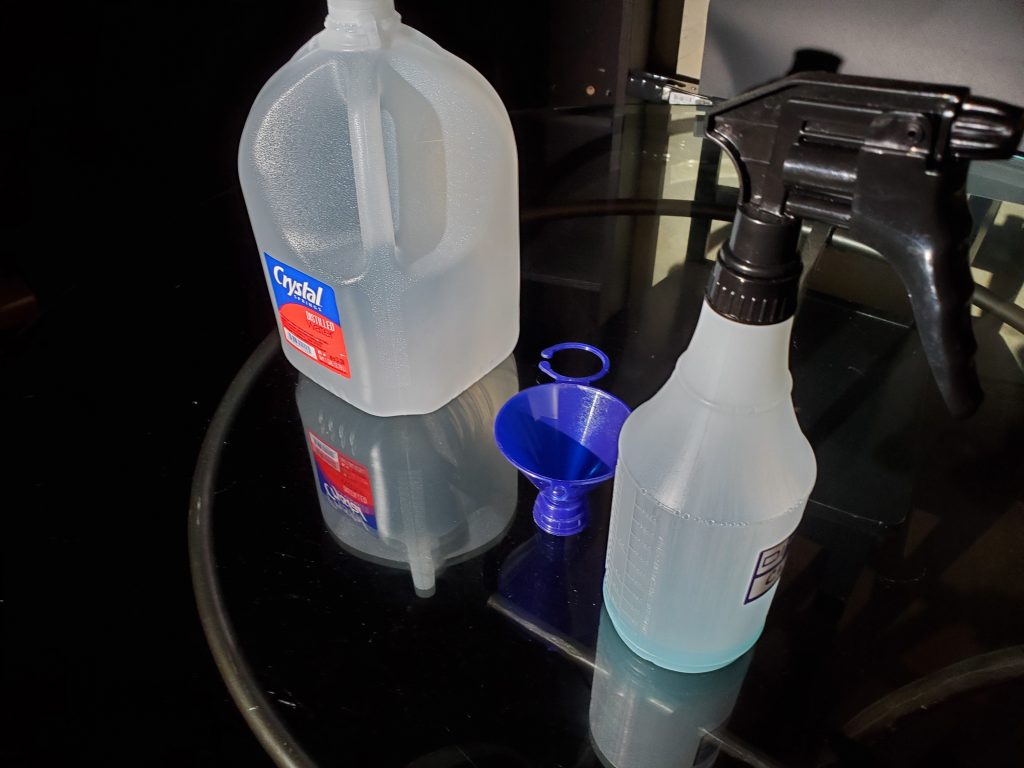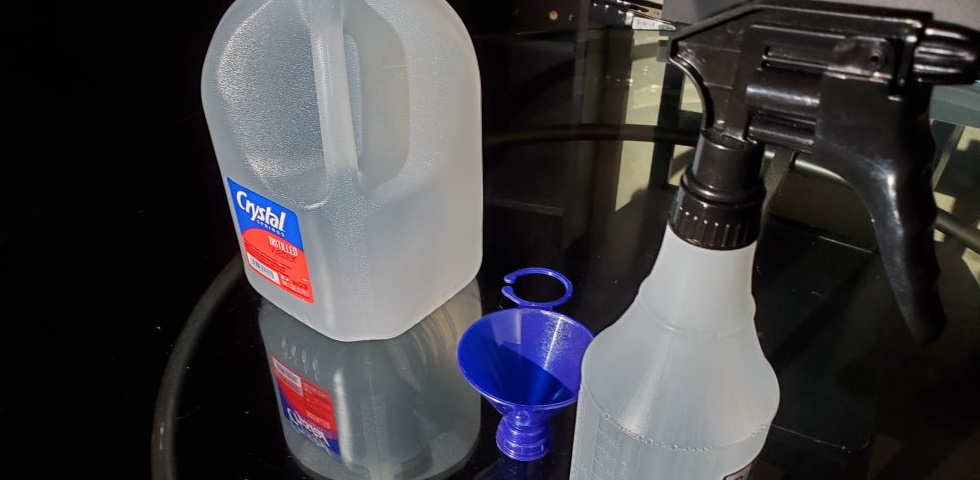
Are You Using Distilled Water?
If you are mixing from the tap you could be making a product work harder than necessary.
Think about the process of showering, washing dishes, or washing clothes. Can you imagine recycling the suds used for washing? Although this is a somewhat exaggerated example, using hard water in a surfactant (soap) mix is creating similar problems.
How Does It Affect The Product?
When you mix tap water with your favorite cleaner the product subtlety is already cleaning the mineral deposits In the water. This has some effect on the cleaning effectiveness of the product. For waterless washes or quick detailers, I believe it can affect the lubricity (gentleness) of the product as well.
Spraying your car with a hose or filling up a five-gallon bucket, the water quality is not going to have a noticeable cause for concern. But when we look at pre-mixing into a 16-ounce spray bottle the effect of the impurities becomes magnified.
Distilled Water Use Is Also Important For Steam Cleaning.
Think about our home plumbing system. Those pipes are often built to withstand/defend against the corrosive elements produced by hard water. Over many years those my pipes may deteriorate. Many of the steam cleaners that have broken down prematurely, its cause can be attributed to using unfiltered water.
One of the processes of removing minerals and impurities from water is nearly identical to what takes place when you are creating steam. Hence by using non-filtered water you would be creating a buildup of bacteria and corrosive elements in a very expensive tool.
Even with proper soft water application for steam cleaners, it is recommended to clean them once a month with a vinegar solution. The vinegar solution breaks down excess hardened mineral deposits that could be clogging the tubes.
